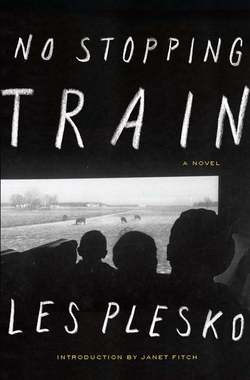Читать книгу No Stopping Train - Les Plesko - Страница 18
На сайте Литреса книга снята с продажи.
ОглавлениеWhere were you born?
I was born in the Szentes Infirmary on April 31, 1921. That was the year King Charles tried to retake his throne. There must have been a drought. Hardly a leaf on the trees, hardly trees.
Where’s that, Sandor?
There were the plains then the plains then a field, then you came to our town. It was famous for black pottery. The lane where we lived soaked with after-shower mud. Vines crept up the wrought-iron gate. They used to burn witches there for selling the rain to the Turks.
You always lived there?
Cats ran up and down the mud streets, a buckboard brought me home. Carts brought mail, rags, and milk. We had a loosely built house by the side of the road. I wore short pants until I was ten, no shoes or shoes covered with dust. An iron gate, there were four chickens next door.
Your mother and father?
He wore a thick printer’s smock, she canned what fruit there was. Outside my window, the sound of her knees, of the hoe. He ran the press for the Hódmezővásárhelyi Hírlap. He also printed broadsides. He helped found the first Communist party, you know.
What happened to him?
I don’t speak to him.
Sandor, what happened to him?
This is his shirt, I wear the same size clothes. Later, he used a cane. The Horthy government fixed him good. He tucked a hundred forints in my shirt, put me on a train. After my mother died he was old. Always, he was already old.
Tell it again, don’t leave anything out.
I was born on an evening so dark. [Sandor laughs.]
All the evenings are dark in the country, Sandor.
Streetlights came late to our town. Goats in the lane with their bells driven home in the dusk. My mother was dead and my brother had died.
Your brother had died?
I thought my mother killed him, I thought I was next.
Did your mother kill him?
He was born with a cleft lip. My mother struck him with the hoe. My father set both their obituaries in the Hódmezővásárhelyi Hírlap.
What happened to him after that?
I told you, he died. I hid in the woodpile.
Not your brother, your father, Sandor.
We could go see him back there, but we won’t.
Because you hate him?
He gave me a hundred forints, put me on the train. He said, don’t look back here. He smelled like ink and compost. My brother was older than me but he seemed the younger boy. I refused to walk him to school. I wished my mother dead even if it was an accident.
It was no accident?
She got taken away, she got sick then she died, that’s the proof.
[He finishes her cigarette.]
What happened to you in the war?
I was too young, but my father printed a paper so I could join up.
What happened to you in the war?
We pulled artillery through the mud. We pulled a calf from a cow in a field. We pulled a baby from its mother’s womb in some hay but the baby turned blue. We pulled artillery through mud some more. I manned the big gun. We advanced, for a while.
[The lights go out.]
Is there a God?
We tied a chain around the calf in the cow, there was blood on the snow. I said pull. I was the sergeant by then, the real sergeant had already died. We pulled the calf loose. We pulled the baby from the womb, it breathed once, twice. We were already losing the war. This was in Russia, 1944, almost spring, but there was still plenty of snow.
Is there a God?
I said to myself I couldn’t protect him because he was older than me. My mother said his harelip was a sin. It might have been an accident, what she did. Still, I was afraid I was next. When she died I was pleased.
Then the war?
We marched through four seasons twice. We covered the German retreat. Everyone died except me and the radioman and the cook. We passed through.
Then you met Erzsébet?
We covered the Germans’ fleeing backs. In Stalingrad we covered the backs of their necks with our chests. When we turned to run, it was too late to turn.
Then you met her, Sandor?
If I had other clothes, I would have burned my uniform. The cook stepped on a mine. The radioman headed south, I turned west. I didn’t write home. I passed through outside of a camp. Someone had made a small fire from crates and some mostly dead coals.
That was her?
Everyone dead, and that girl in my arms.
[The lights come back on.]
So we could go visit your father then, still?
He printed the obituary of everything.
